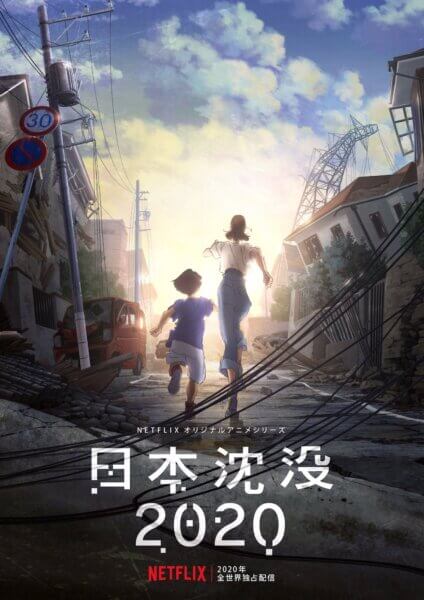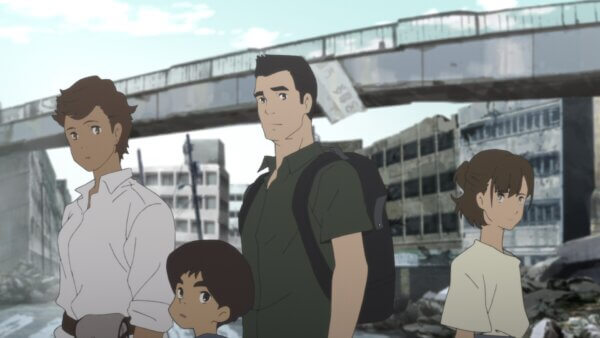Japan Sinks: 2020 Review
Masaki Yuasa returns to the director’s chair after he and his studio work on popular animated titles including Adventure Time, Shin-Chan and Yo-Kai Watch. After his success on directing the anime hit Devilman Crybaby for Netflix, Yuasa and the team at Science Saru adapted the 1973 Japanese novel this year.
While the series follows some of the key events of the book, there are some changes too with the anime taking place in modern day and featuring a narrative on a group of characters’ survival. But despite the creative choices used to adapt the novel, does it make for a captivating or devastating watch?
The series follows a Tokyo family’s experience after major earthquakes hit Japan at the same time and how the natural disaster has affected them and the people that they meet across their journey to find a safe haven among the chaos around them. This family of four and the rest of the cast go through many powerful emotional arcs throughout the ten episodes, some of which are expected and others that you may not think you would experience compared to other film and television productions based on disasters.
One of the biggest strengths with the series is how compelling the characters are as the story is very much driven by them and not the scenarios in which they find themselves in. From the parents struggling to try and remain upbeat to their children being haunted from what they witnessed in their city, the journey that they go on is simply emotionally captivating from start to finish.
Fans of Science Saru’s previous work will instantly recognise the animation style that they have been known for during the past few years and it can be felt again throughout each episode. Whether you have watched their television shows or their feature films, their signature character designs and detailed, twisted facial expressions are present throughout the series. Yuasa is able to balance these qualities really well as the director and it makes the series captivating to watch, even when it goes to some sudden dark places.
But while their previous work dealt with different fantastical elements that they openly experimented with to change their characters, the roots in a realistic setting means that they are able to really focus on selling each episode on the emotional drive and the Japanese landmarks twisting around them. And they are able to create beautifully crafted and visually challenging scenes that feels more impactful due to gradual alterations made to the familiar landmarks and iconic locations.
Composer Kensuke Ushio does a brilliant job once again to make these dramatic scenes that much more dreaded and this makes even the most subtle scenes very emotional. Every episode’s artistry goes hand in hand really well with Ushio’s work and it’s brilliant to see him and Science Saru collaborate again.
Japan Sinks: 2020 is easily one of the most emotionally affecting pieces of animation you will see this year, not just because of the gorgeous animation of a fictionalised natural disaster, but the compelling story that it plays a part of. Whether you’re an anime fan or not, this is one of the best dramas to come out on Netflix and all animation enthusiasts should stream this title.




